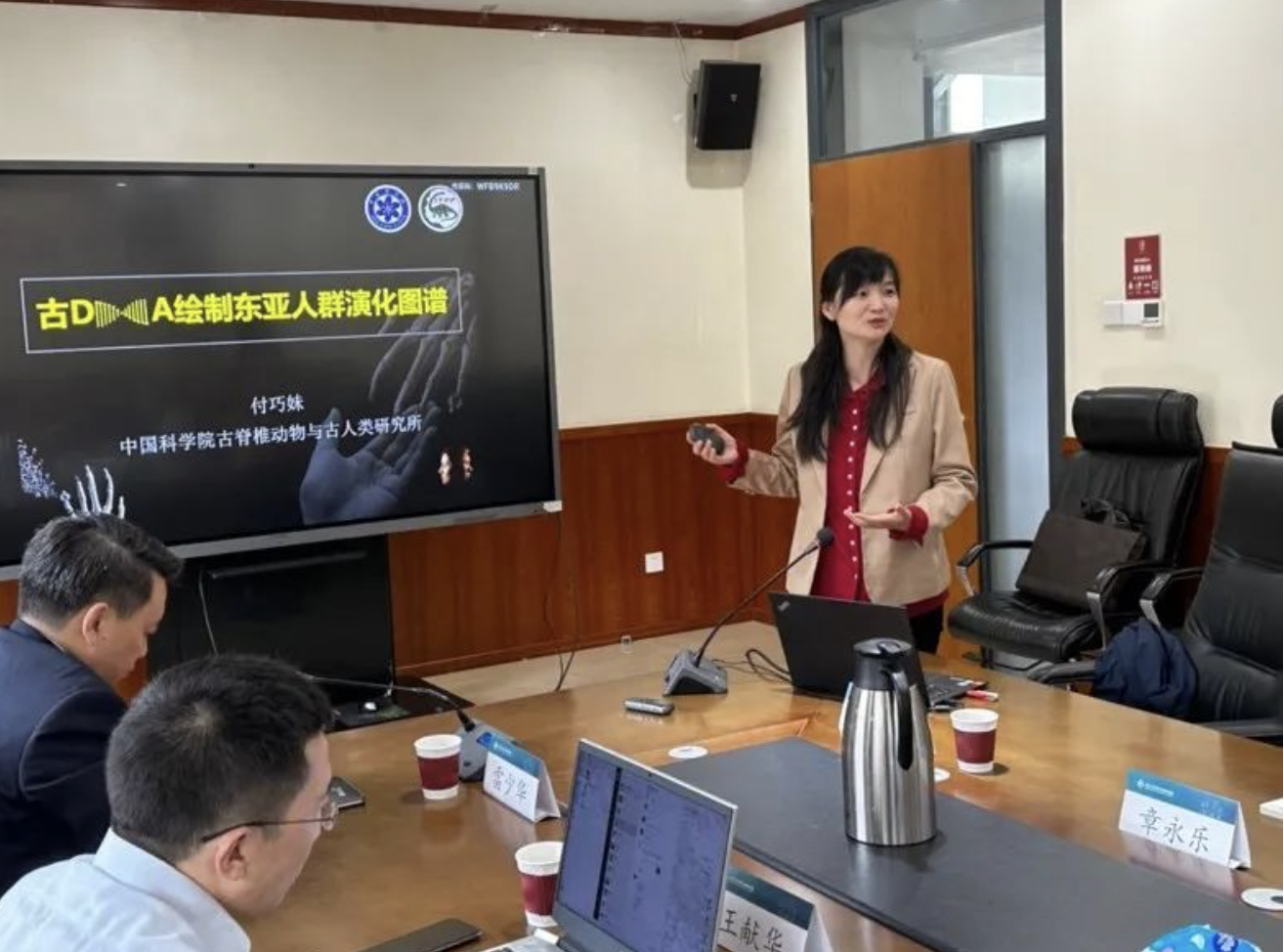
The sixth lecture in the series "Autonomous Knowledge System Construction and New Perspectives in Area Studies," themed "Mapping the Evolution of East Asian Populations by Ancient DNA," was held at the School of International Studies, Peking University on November 2, 2023. The seminar was hosted by Fu Qiaomei, a research fellow from the Institute of Vertebrate Paleontology and Paleoanthropology of the Chinese Academy of Sciences, and chaired by Lei Shaohua, an associate professor at the School of International Studies, Peking University.
Fu Qiaomei first introduced the development history of ancient DNA research, which began over 40 years ago. Due to the inherent characteristics of ancient DNA research, the reliability of human ancient DNA studies was questioned for a long period because the results could not be verified by repeatable experiments. Around 2008, with the continuous development of technological methods, the research on ancient DNA became increasingly rich, especially after 2010, when human ancient genomics entered a new period of vigorous development.
Fu Qiaomei then discussed two key questions in ancient DNA research. The first was how extinct ancient humans interacted with modern humans. "Extinct ancient humans" refers to human groups that no longer have descendants and whose physical characteristics differ from modern humans. The interaction between extinct ancient humans and modern humans was unclear until the genome of Neanderthals and mixed-blood descendants of Neanderthals and early modern humans were discovered in 2010 and 2015. Fu Qiaomei also talked about the Denisovans, an extinct ancient human species identified through genetic research, and her team’s journey in tracing Denisovan DNA from the soil of the Tibetan Plateau. She detailed how the Denisovan genome has helped modern humans adapt to extreme environments.
The second major question addressed by ancient DNA research is the evolution of humans at different stages. Fu Qiaomei gave examples of phenotypic trait evolution found in ancient DNA research, such as blue eyes appearing in large numbers in European populations 14,000 years ago, and white skin emerging about 7,000 years ago, emphasizing that human evolution is not a single, linear process.
The seminar focused on the evolution of modern East Asian humans. Fu Qiaomei introduced various studies, including research on Tianyuan Cave Man, Ice Age populations in East Asia, populations in North and South China over the past 10,000 years, and populations in key cultural regions such as Xinjiang and the Tibetan Plateau. She highlighted that Chinese populations have had a different evolutionary history from European populations. Since the emergence of new agriculture around 9,000 years ago, European populations have been significantly influenced by external groups such as Near Eastern agriculturalists and Eurasian steppe populations, while the evolution of Chinese populations in the north and south, despite diverging as early as 9,500 years ago, has been continuous and largely unaffected by external influences.
Finally, she pointed out that ancient DNA research is a typical interdisciplinary field, combining materials, problems, and methods from archaeology, anthropology, bioinformatics, and genetics. This discipline, which has experienced many mistakes and setbacks, thrives on the willingness to take risks and continuously innovate and optimize methodologies, necessitating a certain tolerance for error.
In the discussion session, Zhang Yongle, deputy director of the Institute of Area Studies, Peking University, noted that area studies focuses on debates surrounding identity among different groups and that the research on ancient DNA by Fu Qiaomei provides important evidence for these discussions, extending beyond natural science research. Zan Tao emphasized the need for area studies to integrate humanities and social sciences research with natural sciences findings. Wang Xianhua, director of the Institute for the History of Global Civilizations at Shanghai International Studies University, highlighted the unprecedented evidence chain provided by Fu Qiaomei’s research for area studies, advising other disciplines to use this evidence judiciously.


